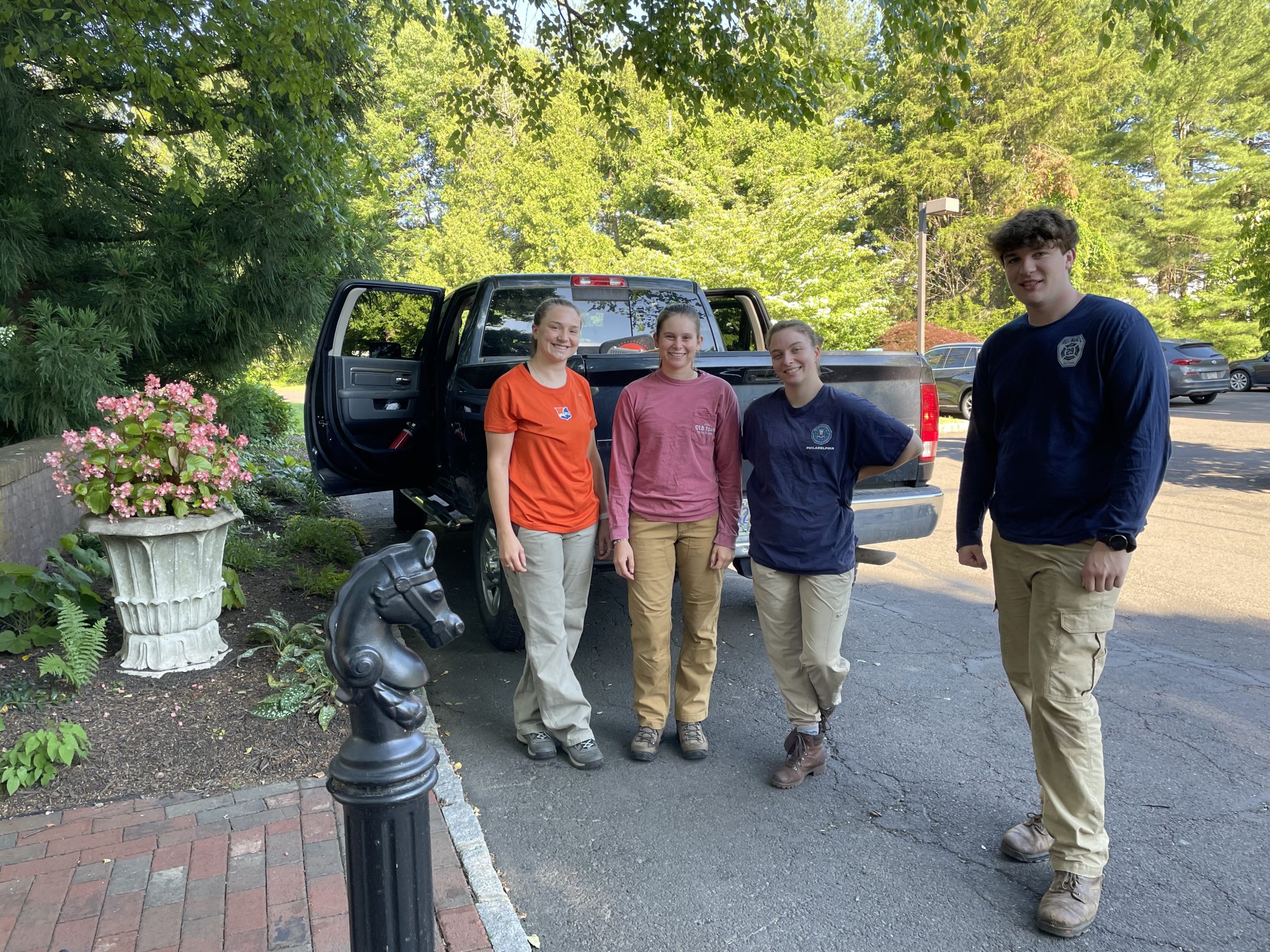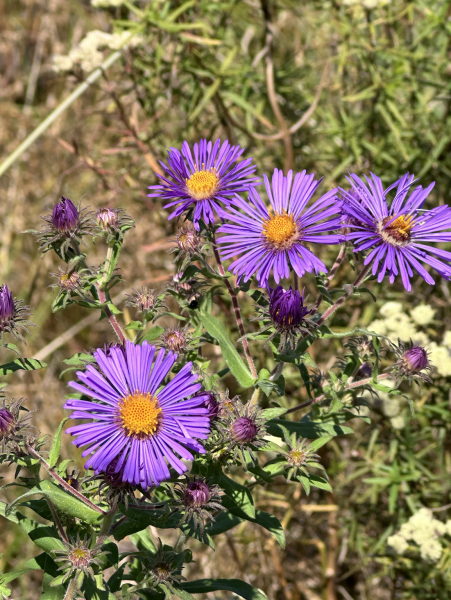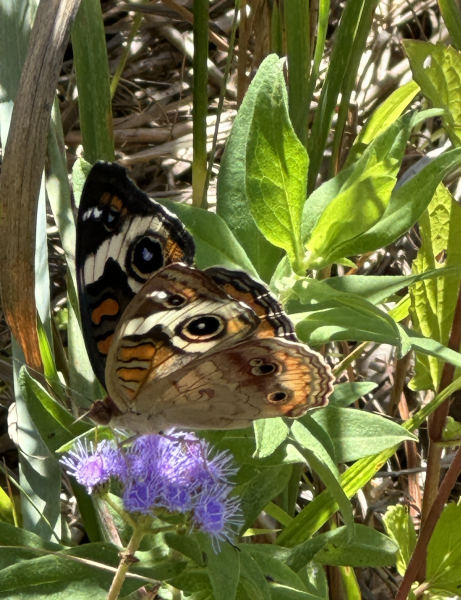The Heritage Conservancy conservation stewardship interns from this summer.
Each summer, Heritage Conservancy hosts four conservation stewardship interns who assist our stewardship staff in managing the nature preserves we own, all while gaining insights from various professionals in the field.
These college students aim to pursue careers in conservation and will apply the skills they acquire during the internship. They are introduced to a variety of tools and techniques for maintaining preserved land to benefit both the ecosystem and the public. Throughout the summer, the interns learn to identify species on the preserves and the best methods to protect them for future generations. They work alongside Jim Drennan, our Land Conservation Manager, and Tyler Kovacs, our Senior Conservation Biologist. The interns also manage invasive species to restore habitats and ecosystem services on Heritage Conservancy properties across Bucks County. From identifying tree species to banding young falcons, these students gain a unique and hands-on experience in conservation and environmental stewardship.
This season’s interns shared some of their favorite experiences from the summer:
Paige: The Pollinator Meadow
My favorite day during my internship at Heritage Conservancy was undoubtedly when we planted a native pollinator meadow. This experience was particularly memorable because it was my first time using a tractor to till the soil, preparing it for the seeds. The tractor experience was both thrilling and educational, giving me a new appreciation for the hard work involved in land preparation.
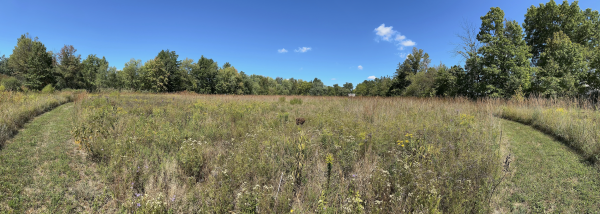
Working alongside dedicated volunteers, we spread the cover crop and scattered native wildflower seeds, planting a habitat for the future. Throughout the day, I learned about the crucial role pollinator meadows play in supporting biodiversity, providing essential habitats for various species, and contributing to the health of our ecosystems.
Equally important was the lesson I learned in teamwork and community effort; seeing volunteers come together with a shared goal was truly inspiring. This experience equipped me with practical skills and a deeper understanding of ecological stewardship, which will undoubtedly benefit my future career. Additionally, the thought of returning to this site in a few years to witness the vibrant, thriving habitat I helped create fills me with excitement and a profound sense of accomplishment.
Hailee: Kestrel Banding
Throughout the summer, Jim and Tyler guided us through several preserves owned by Heritage Conservancy and introduced us to various professionals working in different areas of conservation. Among all the experiences we had, the day that stands out the most was when we spent time with certified bird bander Jere Schade. As a federally certified bird bander, Jere’s work is entirely volunteer-based, showcasing the dedication of individuals in the conservation field who devote their free time to making a positive impact on the environment.
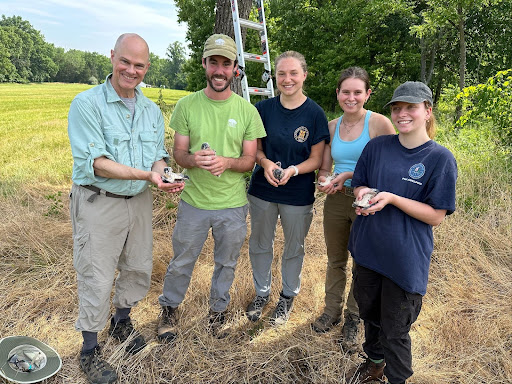
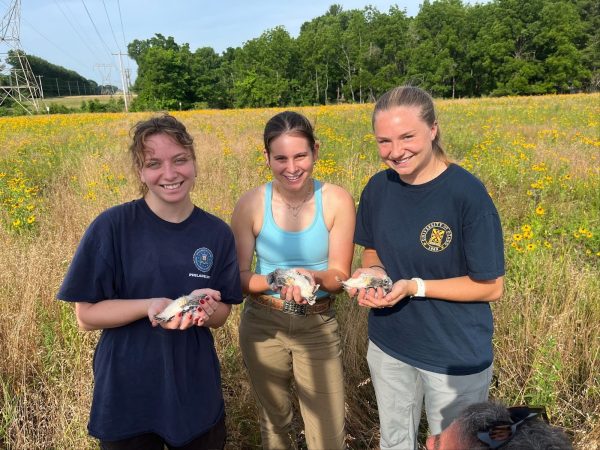
We visited several properties where Jere had us help band young kestrels. Kestrels are the smallest and most colorful falcons in North America. At each nesting site, Jere handed us the baby falcons to hold while he placed a small metal band around their legs for identification if they are captured or found again. From this experience, I learned the steps to become a certified bird bander and discovered many interesting facts about kestrels as I held one in my hand. Having always been interested in birds, especially birds of prey like falcons, this experience will be invaluable as I aim to work more closely with wildlife and species conservation in the future.
Harlan: The Crayfish Survey
Every day this summer provided new experiences that enhanced my understanding of my field of study. Heritage Conservancy enabled us to meet professionals from various positions in the industry and explore potential career paths. My favorite day of the internship was when the crew met with a professor who specializes in studying crayfish on the East Coast to search for a crayfish species believed to be extirpated from Pennsylvania but possibly sighted on one of our preserves. While surveying the property, I gained significant insight into the process and the work involved after the survey through conversation and observation. The professor explained how he identifies healthy crayfish habitats and how different plants and soil types can benefit crayfish while also potentially encouraging invasive species, which can decrease the likelihood of finding our target species.
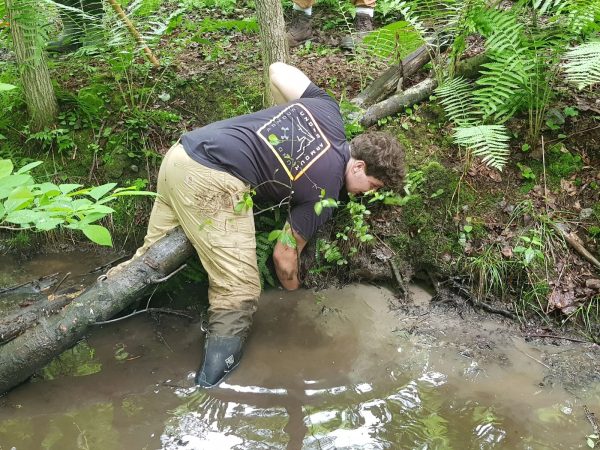
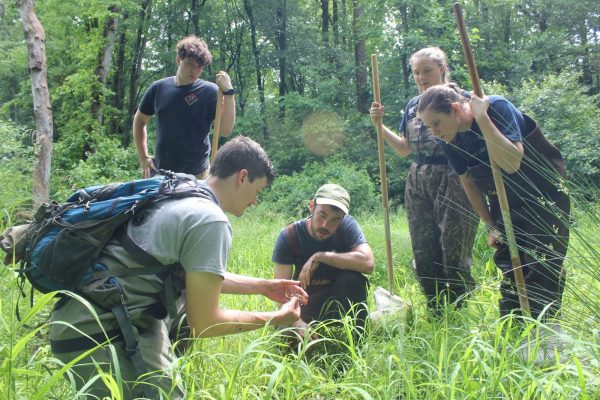
As we searched a burrow believed to hold our target species, the professor explained the types of substrate this species prefers and the conditions it has been found in across other regions. This sparked further discussion about how field research is conducted and how not all specialties in the field receive equal attention. This experience was invaluable to me, as my concentration is in stream ecology, and every opportunity to work alongside experts helps me build my knowledge and expand my skill set.
Jillian: The Fish Survey
This internship provided us with numerous unique experiences throughout the summer, preparing us for our future careers. My favorite experience was the fish survey we participated in with the PA Fish and Boat Commission. We surveyed a stream in Bowman Hill’s Wildflower Preserve that had no previous records of fish populations, in order to gain a better understanding of the stream’s health and the species present.
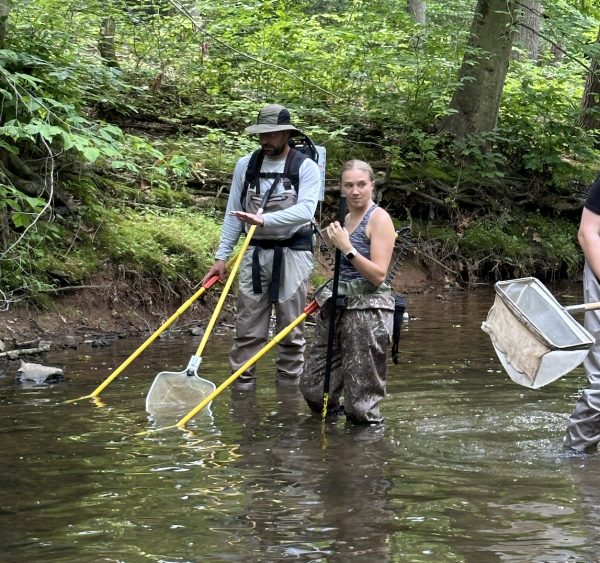
The team from the Fish and Boat Commission allowed us to participate in electrofishing, where we used electrical probes to temporarily stun the fish, making it easier to collect, identify, and measure them. This hands-on opportunity helped me learn about the diverse fish species in Pennsylvania’s waterways and introduced me to new field monitoring techniques. The practical knowledge and skills gained from this experience will better equip me for my future career endeavors, as I plan to pursue a career in the environmental industry, where I hope to engage in similar activities to monitor and protect different ecosystems. This day was incredibly valuable, shaping my understanding of various types of fieldwork and strengthening my passion for environmental conservation.
Work of Heritage Conservancy’s 2024 interns was funded in part by a grant from Lower Delaware Wild & Scenic.
